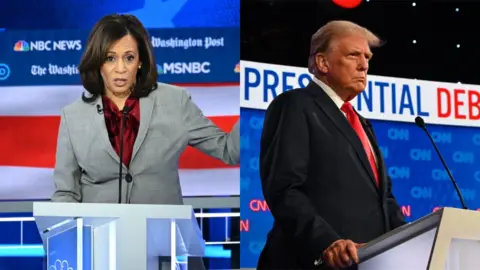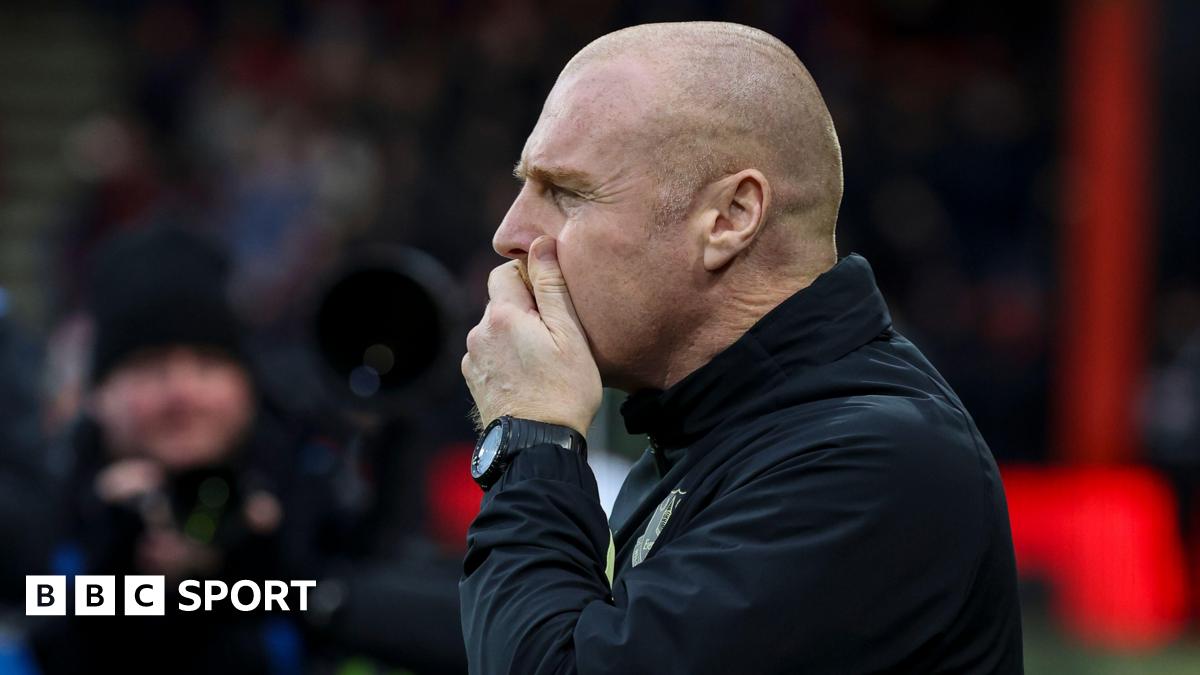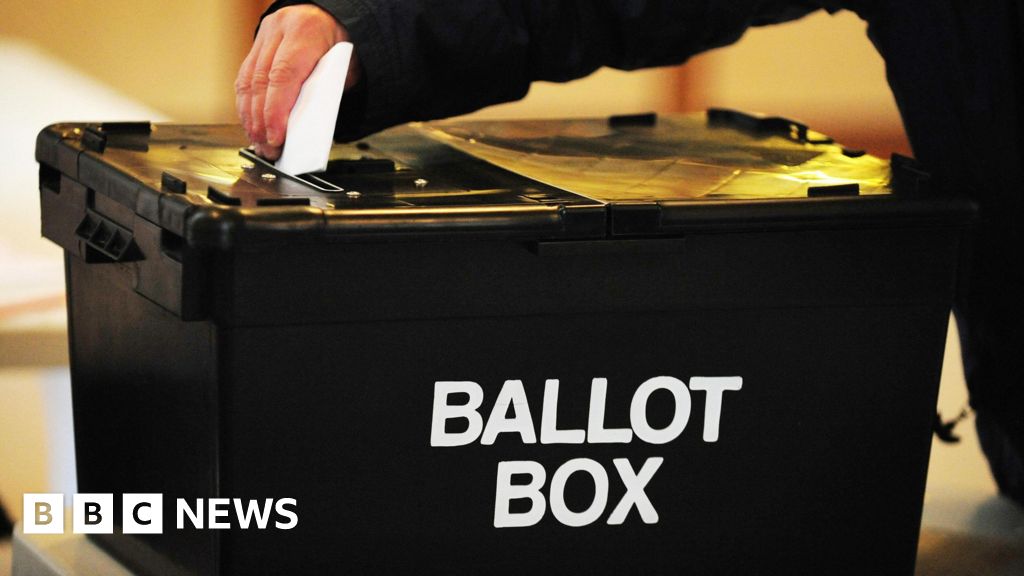
 Getty Images
Getty Images
The two presidential candidates are set to go head to head on 10 September
Kamala Harris and Donald Trump are set to square off in their first presidential debate next month, but the campaigns are still warring over logistics - namely relating to the microphones.
Trump's campaign is pushing for the microphones to be muted when it is the other person's turn to speak. This is a rule that was was originally requested by Joe Biden when he was the Democratic candidate.
Trump's team ultimately agreed to the request - which was an apparent effort by Biden's campaign to limit interruptions. (The pair's chaotic first 2020 debate was marred by constant interruptions, with Mr Biden eventually snapping at his rival: "Will you shut up, man?")
Some analysts say the Trump campaign's eagerness to keep the muting rule in place for the Harris debate on 10 September may be due to the positive reception he received for what was a more reserved performance than many had anticipated against Mr Biden in June. In practice, it made interruptions impossible.
The former president, however, appears less concerned by the rule and to some extent even undermined his own team's statements calling for it to remain in place. "[It] doesn't matter to me. I'd rather have [the microphones] probably on," he said on Monday.
"But the agreement was that it would be the same as it was last time. In that case, it was muted," he added.
The Harris campaign wants to shift the agreed rules with just two weeks to go so that both candidates' microphones will be unmuted for the entire debate. What do they think they could gain from this change?
More generally, they believe it has the potential to show viewers a more unfiltered, even ill-tempered, Trump who would be audible throughout the entire time Ms Harris is speaking.
"Our understanding is that Trump's handlers prefer the muted microphone because they don't think their candidate can act presidential for 90 minutes on his own," a statement from Harris's spokesman said.


"The reason she's saying to unmute the mics is because Trump is uncontrolled," Ameshia Cross, a Democratic strategist and political analyst, told the BBC.
Ms Cross said Trump's rallies and Truth Social posts, where he has launched repeated personal attacks against Ms Harris, offer examples of how he may approach the looming debate on ABC News.
Those attacks "turn off voters" particularly women voters, voters of colour and young voters, Ms Cross said.
Strategists have also suggested Trump's insults may turn off crucial undecided voters. “One of the ways to win over swing voters is not by personal attacks,” Kevin Madden, a longtime Republican strategist, told the New York Times. “By nature, they don’t love partisan politics."
If Trump's microphone is unmuted while Harris is speaking, the likelihood of an audible insult or interruption ramps up. And the Harris campaign may feel a more aggressive Trump who is able to interrupt at will could benefit them by turning off these swing voters.
This matters in an election that will be decided by a relatively small group of undecided voters in a handful of battleground states such as Pennsylvania, where the debate is being held.
"He’s very prone to having intemperate outbursts and... I think the [Harris] campaign would want viewers to hear [that]," a person familiar with the debate negotiations told Politico this week.
The Trump campaign, according to reports, are eager for their candidate to focus on the key issues and not on personal attacks. One ally who speaks to the former president every week recently told the BBC's Katty Kay that Trump will win in November if he sticks to talking about the economy, the border and crime.
It is fair to assume that if the candidates are only audible during their allotted answer time, then the debate is more likely to focus on the issues, as the Trump campaign wants, and not tense clashes and heated exchanges which would be possible with live mics.
Name-calling and insults - key moments from Biden and Trump’s 27 June debate
Ford O’Connell, a Republican strategist, told the BBC that he believes the Harris campaign's effort to unmute the microphones is an attempt to move the debate away from the issues and into the arena of grabby viral moments.
"They're not sure they can win on the issues so what they're looking for is any way possible to have a viral moment," he said.
Ms Harris has had these moments in the past. During the 2020 vice-presidential debate between then-vice-president Mike Pence and Ms Harris, a clip of her pushing back on an interruption was widely shared. "I'm speaking, Mr Vice-President," she said.
Mr O’Connell said the Trump campaign should continue to aggressively push for the muted microphones because those are the rules the Democratic campaign originally came up with. He said the message should be: "We let you write the rules, we are sticking with the same rules."
Ms Cross, however, suggested the Harris campaign is calling Trump's bluff and has the upper hand. "If he does not want them unmuted, he's going to look weak, like he cannot control himself," she said.
While Ms Cross said Trump was trying to "weasel" his way out of the debate by attacking the network, Mr O'Connell said the Republican nominee would show up regardless for what is set to be a major moment.
"The 10 September debate could be the most consequential moment between now and election day," he said.
 (1).png)
 4 months ago
6
4 months ago
6


















